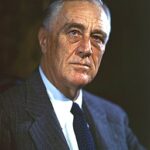Franklin D. Roosevelt’s decision to initiate the Fireside Chats in March 1933 fundamentally transformed presidential communication in America. These intimate radio addresses bypassed traditional media gatekeepers, creating direct dialogue between the president and citizens. 📻 Roosevelt delivered his first chat on March 12, 1933, explaining the bank holiday to 60 million listeners.
The Innovation Behind Fireside Chats
FDR’s approach was revolutionary for its simplicity and warmth. He spoke conversationally, using everyday language that ordinary Americans could understand. The president addressed listeners as friends gathered around their radios. This personal touch contrasted sharply with formal presidential speeches of the era.
Strategic Communication During Crisis
Roosevelt strategically used these broadcasts during critical moments in American history. He explained complex New Deal policies in simple terms that families could grasp. 💰 The president discussed economic recovery plans, banking reforms, and wartime strategies through these accessible formats. Each chat was carefully timed to address pressing national concerns and restore public confidence.
Impact:
The Fireside Chats created unprecedented trust between the American people and their government during turbulent times. 🌍 Roosevelt’s radio addresses reached approximately 70% of American households, creating shared national experiences. Citizens felt personally connected to their president, strengthening democratic institutions when they faced severe stress.
Immediate Political Consequences
These broadcasts immediately stabilized public confidence during the Banking Crisis of 1933. Bank deposits increased dramatically after Roosevelt’s first Fireside Chat explained banking reforms. The president’s approval ratings soared as Americans appreciated his direct communication style. Political opponents struggled to counter Roosevelt’s intimate connection with voters.
Long-term Historical Significance
The Fireside Chats established the template for modern presidential communication strategies. 📊 Historians credit these broadcasts with helping America navigate the Great Depression and World War II successfully. Roosevelt’s innovation influenced every subsequent president’s media strategy. The chats demonstrated democracy’s power when leaders communicate transparently with citizens. This communication revolution strengthened American democratic institutions for generations, proving that authentic leadership builds lasting public trust during national challenges.
